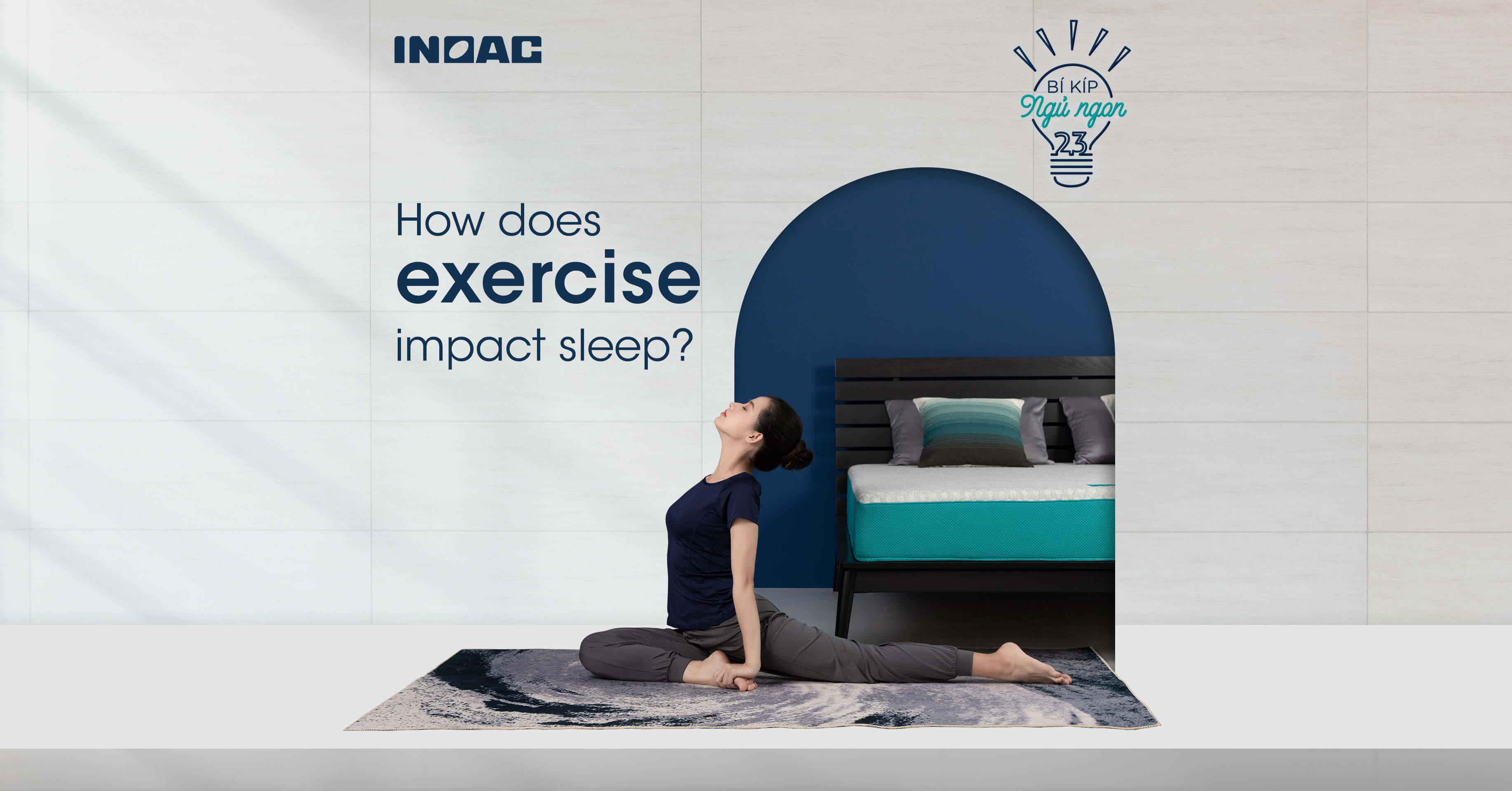Many studies and researches have been processed over the years to investigate the relationship between sleep and exercise. It is proven that proper exercise can help to resolve sleep issues and improve sleep quality.
Therefore, sleep experts believe that a suitable exercise routine will help us to sleep better. Meanwhile, having an adequate amount of sleep also allows us to have enough energy for a higher level of physical activity the next day.
So why and how exercise is able to make it?
Regular exercising not only supports sleep but also creates many other benefits, including a lower risk of diabetes and cancer, as well as higher physical function. And it can be clearly seen that exercise is good for losing weight and keeping fit, too.
According to many studies, moderate to high-intensity exercise would reduce the time you need to fall asleep, leading to the less amount of time you lie in bed and stay awake. For many people, it means fewer needs for sleep medications.
Exercise also affects sleep in many indirect ways. For instance, exercise or physical activities decrease the chance of excessive weight gain, so that person will be less likely to suffer from the symptoms of OSA (obstructive sleep apnea).
Also, while stress is one of the main reasons causing insomnia, one study also figured out that physical activities have the ability to reduce stress, therefore increase sleep quality and overall health.
A survey by the National Sleep Foundation
In one study generated by the National Sleep Foundation in America among adults from 55 to 84 years old, it is proven that the group of people who exercise three times or more per week were likely to sleep more than 6 hours per night and experience less interrupted sleep.
Meanwhile, people who exercised one time or less per week seemed to have more problems with their sleep, including insomnia, interrupted sleep, sleep apnea, etc.
Should we exercise before bed?
This is such a question that has been investigated over the years. Many studies have found that intensive exercise can generate negative impacts on sleep since it might cause high body temperature and increase heart rate. On the other hand, many types of research have pointed out that exercising before bed might even benefit some groups of people.
The survey results are very different among people, so you should listen to your body to identify what is the suitable time for exercise before bed, as well as the intensity that best fits your schedule of sleeping. There are certain exercises that are proven to be more suitable for sleep than the others. They are breathing exercises, yoga, and light stretching.
Overall, exercise is proven to be helpful for our sleep since it can help to effectively increase sleep quality. However, you would better consider the time and intensity of your exercise before going to bed to ensure your sleep quality!
Source: Sleep Foundation







